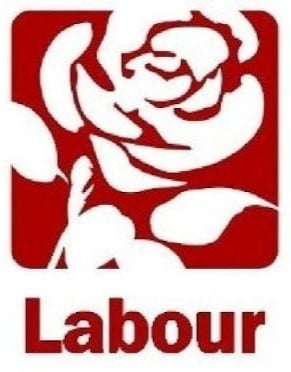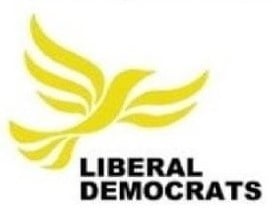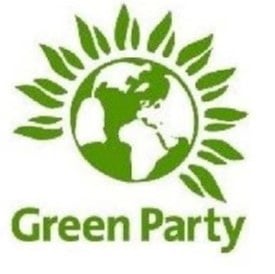Conservatives
The Conservatives have pledged “lower immigration, lower taxes and protected pensions” in its manifesto launched on 11 June ahead of July’s election.
Economically, the party has pledged to cut tax for workers by taking another 2p off employee National Insurance and cut taxes to support the self-employed by abolishing the main rate of self-employed National Insurance entirely by the end of the Parliament.
A new Triple Lock Plus for pensioners would guarantee that both the State Pension and the tax free allowance for pensioners always rise with the highest of inflation, earnings or 2.5 per cent.
The party has pledged to “end the unfairness” in Child Benefit by moving to a household system, so families don’t start losing Child Benefit until their combined income reaches £120,000.
The Conservatives say they would pay for £17bn of tax cuts by 2030, including cutting National Insurance for the self-employed, by making savings elsewhere.

The Conservatives saidthey will cut the costs of net zero on consumers by “taking a more pragmatic approach, guaranteeing no new green levies or charges while accelerating the rollout of renewables.”
The party has previously announced a plan, reiterated in the manifesto to introduce mandatory National Service for all school leavers at 18, with the choice between a competitive placement in the military or civic service roles.
The party said it would boost defence spending to 2.5 per cent of GDP by 2030, and introduce a legal cap on migration to “guarantee that numbers will fall every year.”
The Conservatives have continued with their pledge to remove illegal immigrants to Rwanda.
The party said it would “protect female-only spaces and competitiveness in sport by making clear that sex means biological sex in the Equality Act.”
Among other pledges, the party said it will recruit 8,000 more full-time, fully warranted police officers to “ensure a new police officer for every neighbourhood”, while cutting anti-social behaviour in town centres by rolling out ‘Hotspot Policing’, expanding community payback and legislating to evict social tenants who repeatedly disrupt their neighbours.
The Conservatives are also pledging to toughen sentences for offences including knife crime, grooming and assaults against retail workers.
The party also promises to end rough sleeping – a commitment they also made in their 2019 manifesto.
The party also said it will “continue to directly invest in communities across Scotland, Wales and Northern Ireland, protect the UK’s internal market and the integrity of our United Kingdom.”
Labour
Labour’s manifesto, released on 13 June, promises to ‘change how Britain is governed’ and build “hope, growth, and wealth creation” after 14 years of Conservative rule.
The party’s manifesto said a Labour Government “will not increase National Insurance, the basic, higher, or additional rates of Income Tax, or VAT.”
It said it will “modernise HMRC and change the law to tackle tax avoidance”.
The party will cap corporation tax at the current level of 25 per cent for the entire parliament.
Labour will grant 16-year-olds the right to vote to “increase the engagement of young people in our vibrant democracy.”
The party will conduct a Strategic Defence Review within its first year in government, and “ set out the path” to spending 2.5 per cent of GDP on defence.

On border controls, Labour said it will create a new Border Security Command, with hundreds of new officers while also establishing a new returns and enforcement unit “to fast-track removals to safe countries.”
Labour said it will reform the points-based immigration system so that it is “fair and properly managed.”
The party said it will also implement a new ‘making work pay’ strategy within its first 100 days, which will include banning zero hours contracts and introducing basic rights from day one to parental leave and sick pay.
The minimum wage will be set as a “genuine living wage”, the manifesto said, while age related bans will be scrapped.
The manifesto announces a £7.3bn National Wealth Fund which will be used to upgrade ports and build supply chains across the UK and rebuild the country’s automotive and steel industries.
A Green Prosperity Plan outlines aims to double onshore wind, triple solar power, and quadruple offshore wind by 2030.
Labour said it would “restore neighbourhood policing” by adding thousands of extra officers, and leading a crackdown on antisocial behaviour and knife crime.
It will also look at devolving probation services to Wales during a review.
The outlined plans in the manifesto will be paid through introducing VAT on private school fees, clamping down on those who are underpaying tax and closing loopholes and a windfall tax on oil and gas.
The manifesto said a Labour Government would “strengthen the relationship between the governments in Westminster and Cardiff Bay, and the two governments “will work collaboratively to deliver Labour’s national missions.”
The party will also establish a new Council of the Nations and Regions.
Liberal Democrats
The Liberal Democrat manifesto, launched on 10 June, has promised to deliver £760 million in extra funding to Wales through the party’s tax and spending plans while calling for the UK to rejoin the Single Market in Europe.
The party’s manifesto pledges no increases to VAT or National Insurance while “reversing Conservative tax cuts on banks”, to raise an extra £4bn.
The party will also close tax loopholes exploited by the top 0.1 per cent wealthiest individuals, saving £5bn.
Increasing the tax paid by social media and other tech giants to fund improvements to mental health services will also bring in an extra £2bn, the party said.
The Liberal Democrats said the extra taxes would mean the party could spend almost £27bn more a year by 2029.

The party has vowed to scrap the Rwanda scheme and "provide safe and legal routes" for asylum seekers, while abolishing the current salary threshold for migrant workers in favour of what it calls a “merit-based” system.
On climate change, the manifesto promises to “put tackling climate change at the heart of a new industrial strategy”.
The party has called for net zero by 2045 and will accelerate the deployment of solar and wind power so 90 per cent of power will be generated by renewables by 2030.
The party aims to reform welfare policies by removing the two-child limit and benefit cap for Child Benefit payments, and reducing the waiting time for the first Universal Credit payment from five weeks to five days.
There are also plans to reform Carer's Allowance - increasing the benefit by £20 a week, and expanding who is eligible.
The party said it would increase funding for the justice system in England and Wales, promising to halve the time it takes to sentence criminals.
The manifesto pledges that non-binary identities would be recognised in law, while the party also wants to reform the gender recognition process to make it simpler.
The party will also allow 16 and 17-year-olds to vote in UK wide elections – this is already the case in Welsh and local elections – and have vowed to attempt to introduce some form of proportional representation for Westminster elections.
The Liberal Democrats also want to “fix the UK’s broken relationship with Europe”, a strategy which includes a pledge to seek to rejoin the Single Market, with a “longer-term objective” of rejoining the EU.
Plaid Cymru
Plaid Cymru has pledged to fight for “economic fairness for Wales” in its manifesto, launched on 13 June.
The party’s key pledges include securing the £4bn owed to Wales from HS2 to invest in improving our own public transport in all parts of the country and reversing cuts to local bus services.
Plaid Cymru are also demanding a fair funding system for Wales, based around the country’s needs, giving Wales “the public services we deserve.”
The manifesto also calls for “redressing economic unfairness”; increasing windfall taxes and devolving the Crown Estate “in order to create green jobs and build prosperity.”

The party also pledges to protect and strengthen the devolution settlement following what it said were “attempts from the London parties to undermine Wales’ self-government.”
The manifesto said the party would recruit 500 GPs into Wales through “fair funding from Westminster."
Plaid also pledges to increase child benefit by £20 per week to lift 60,000 Welsh children out of poverty.
Plaid’s manifesto also includes a pledge to re-introduce a cap on bankers’ bonuses and to equalise capital gains tax with income tax.
The party is also promising to support the introduction of a “wealth tax”.
Plaid also called for the decriminalisation of "soft" drugs and said it would oppose the renewal of the Trident nuclear weapons system.
The manifesto said the party “believes that the UK should re-enter the European Single Market and Customs Union at the earliest opportunity.”
Plaid Cymru said it “supports the full transfer of policing and justice powers to Wales” and reaffirmed the party’s “commitment to reaching net zero targets in Wales by 2035.”
The party’s manifesto also outlines specific policies to support rural Wales which it says “face distinct challenges associated with distance from key services, limited job opportunities and low incomes, a rural premium, lack of public transport infrastructure, and social isolation.”
Plaid said it will increase GPs to help rural communities access the healthcare they need and “invest in local high streets to keep shops, pubs and community centres open which are under threat due to rising costs.”
The party would set up a Welsh Broadband Infrastructure Company to improve rural digital connectivity, and reconfigure the Rural Fuel Duty Relief Scheme to tackle high fuel costs in the absence of public transport links.
Plaid Cymru would also set up a specialist all-Wales rural crime team.
Green Party
The Green Party released its manifesto on 12 June and plan to tackle the climate emergency and growing inequality by raising taxes on the wealthy.
The manifesto proposes a tax levy at one per cent a year on the assets of people with more than £10m and two per cent on those with more than £1bn.


There will also be a tax rise for earners on more than £50,270.
The party says they want to reach net zero by 2040 at the latest, with measures including banning of short haul flights.
They would also dismantle Trident and stay in NATO.
Heritage Party
The Heritage party, founded in 2020, says in its manifesto that the UK still needs to “fully take back control” from the EU.
The party’s manifesto said the country “must leave the UK-EU Trade and Cooperation Agreement”, end the Northern Ireland Protocol and “disentangle ourselves from the ‘level playing field’ requirements that commit us to ‘net-zero’ carbon emissions.”
The party said there “should be no law or penalty for expressing controversial opinions, making jokes, or engaging in banter” and would “not allow schools to propagate anti-family propaganda which undermines the picture of the traditional nuclear family as the best model of family.”

The Women's Equality Party
The Women's Equality Party stands on a platform of equal representation, equal pay and opportunity and to end violence against women.
It also calls for equality in health, parenting, education and in the media.
The party said it “believes equality for women isn’t a women’s issue.”

“When women fulfil their potential, everyone benefits,” the party said.
“Our party operates around seven core objectives.
“Our ultimate goal is to make equality a reality.
“Equality means better politics, a more vibrant economy, a workforce that draws on the talents of the whole population and a society at ease with itself.”
The Workers Party of Britain
The Workers Party of Britain said it is “committed to the redistribution of wealth and power in favour of working people.”
Led by George Galloway, the party said it is “committed to a reversal of policies aimed at deindustrialisation” and “supports the call for a Net Zero Referendum as soon as possible.”
The party will raise the minimum tax threshold to £21,200 while committing to a “one-off wealth tax on all estates valued fairly at over £10m.”

The party would also reverse what it called “decades of under-investment in our social and economic infrastructure.”
Voters across the United Kingdom head to the polls on 4 July.




.jpeg?width=209&height=140&crop=209:145,smart&quality=75)
Comments
This article has no comments yet. Be the first to leave a comment.